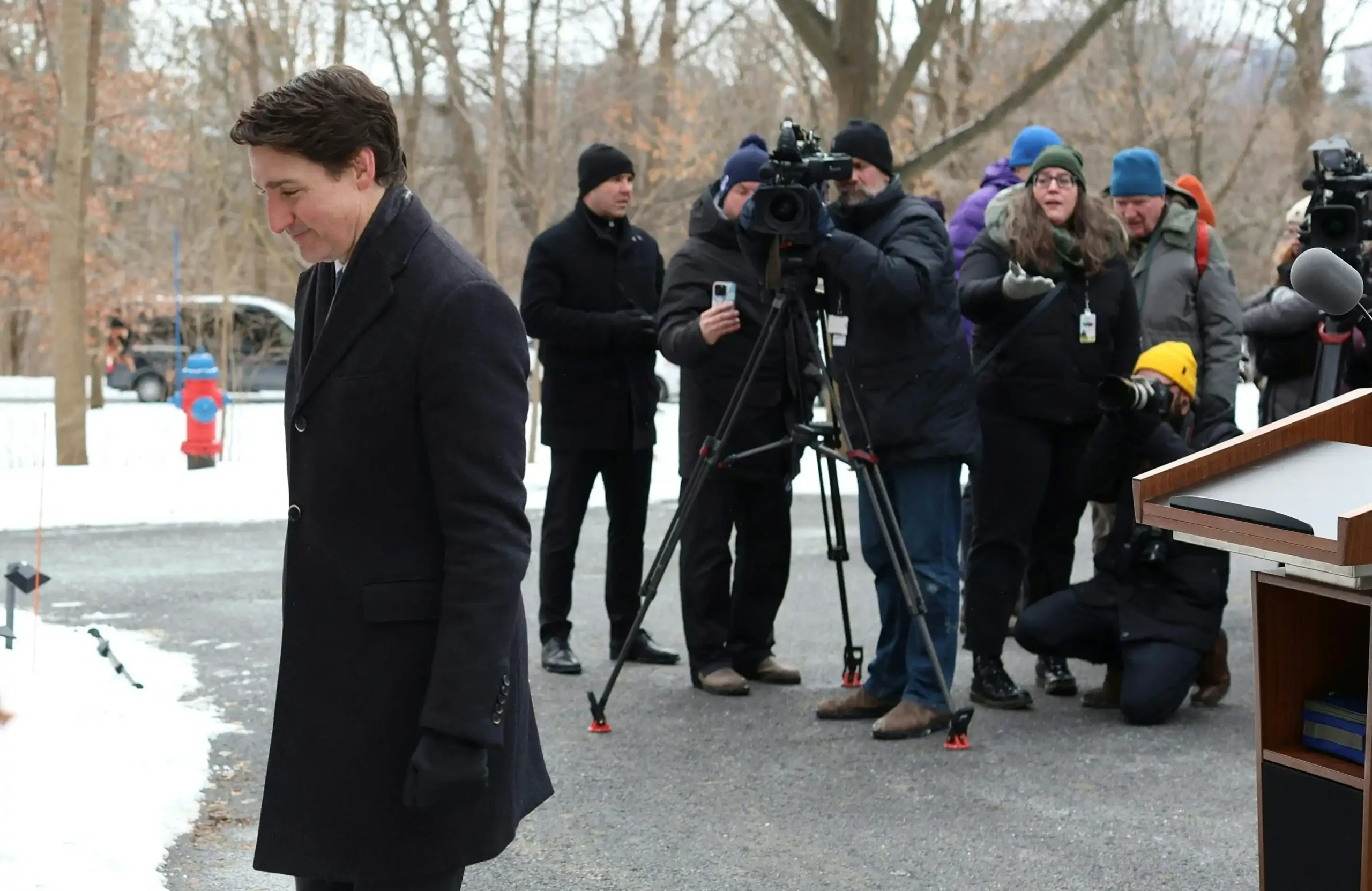In a move that has sent shockwaves through Canadian politics, Prime Minister Justin Trudeau announced his resignation after nearly a decade in power, citing internal party pressures and declining public approval as key factors. This decision comes amid mounting pressure from within his Liberal Party and declining public approval, setting the stage for a significant leadership battle in one of the world’s leading democracies.
Trudeau’s Resignation: A Turning Point for Canadian Politics
“It has become clear to me that if I’m having to fight internal battles, I cannot be the best option in that election,” Trudeau declared in Ottawa, signaling an end to his tenure as Prime Minister. Trudeau plans to remain in office until the Liberal Party elects a new leader, a process that could take several months and involve a series of debates, party conventions, and voting rounds to determine his successor. In the meantime, he has suspended the current legislative session to avoid a no-confidence vote in Parliament.
A Legacy Under Scrutiny
Trudeau’s resignation marks the conclusion of a leadership characterized by progressive policies and significant challenges. While his tenure initially garnered widespread support, recent years have seen a decline in his popularity, fueled by economic struggles, voter dissatisfaction with climate policies, and concerns about immigration.
The resignation of Chrystia Freeland, Deputy Prime Minister and Finance Minister, highlighted internal disagreements within Trudeau’s cabinet. Freeland’s departure was reportedly prompted by concerns over Trudeau’s economic strategy and preparedness for potential trade conflicts with the U.S., particularly as President-elect Donald Trump promises sweeping tariffs on Canadian imports.
Economic Uncertainty and Voter Backlash
Trudeau’s government has faced criticism for rising costs, housing shortages, and high inflation—issues exacerbated by increased immigration and fiscal policies. Public opinion polls indicate Trudeau’s approval ratings have plummeted to 20%, driven by voter dissatisfaction with his handling of economic issues such as inflation, housing shortages, and fiscal policies. Additionally, the Liberal Party is trailing the Conservative Party by over 20 percentage points, reflecting a significant shift in public sentiment. These challenges reflect a broader global trend of backlash against progressive leaders amid economic uncertainty.
The Path Ahead: Leadership Contest and Political Realignment
With Trudeau stepping aside, the Liberal Party is gearing up for a leadership contest. Potential candidates include Chrystia Freeland, who is seen as a unifying figure despite her recent resignation, and Mark Carney, the former governor of the Bank of Canada and the Bank of England, known for his strong economic acumen and international reputation for stabilizing financial systems during turbulent times. Early polls suggest that while Freeland could boost the party’s standing, it may not be enough to regain the lead over the Conservatives.
Conservative leader Pierre Poilievre has emerged as a formidable opponent, leveraging populist strategies to gain traction. Poilievre’s platform includes promises to cut taxes, reduce government spending, and accelerate housing development—resonating with voters disillusioned by Trudeau’s policies.
A Shift in Canadian Politics
Trudeau’s resignation underscores the challenges facing incumbent governments in a post-pandemic world, reflecting a global trend where leaders struggle to balance economic recovery with public dissatisfaction, as seen in recent political shifts in countries like the United Kingdom and Germany. Rising prices, aggressive interest rate hikes, and growing public debt have left Canadian households struggling, eroding confidence in the Liberal government’s ability to navigate these crises.
Shachi Kurl, president of the Angus Reid Institute, summarized the public sentiment: “There was a delay in understanding the pain points for Canadians. Trudeau has also fallen victim to voter fatigue after nearly 10 years in power.”
The International Perspective
Trudeau’s departure will have implications beyond Canada’s borders. As a leading voice in progressive politics, his exit reflects a shift in global political dynamics, where economic pragmatism often takes precedence over ideological commitments.
The Road Ahead for Canada
Canada now faces a critical juncture. With a leadership contest on the horizon and an upcoming election, the nation’s political landscape is poised for transformation. The question remains: who will lead Canada into its next chapter, and how will they address the pressing economic and social challenges?
The stakes are high, and all eyes are on Canada as it navigates this pivotal moment in its history.


















